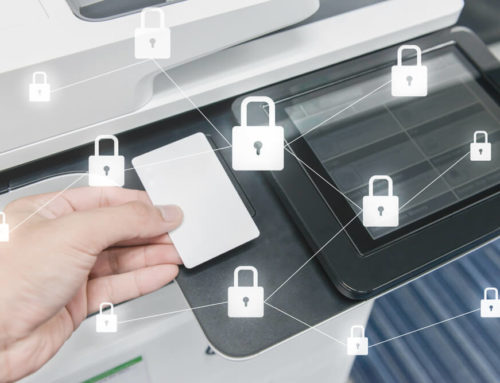Gone are the days when the majority of a business’s files were in filing folders, tucked away neatly in drawers. Now, in an increasingly digital workspace, companies store many files on computer systems and over the internet. A quality data backup storage solution is key to keeping these sensitive documents safe from human error and dangerous viruses that can corrupt your files.
What Is Data Backup Storage?
Since data is the backbone behind a successful business, keeping it secure and available is imperative. When you back up your files, you’re essentially making a copy of them. This copy is then moved to a different storage medium, keeping it safe in case of disaster, hacking, or a virus threat. Data and server backups have come a long way since computers first became popular for home and business use. Previously, people and companies backed up their files manually. Nowadays, complex data backup strategies copy your files to various places without prompting.
When it comes to data backup storage options, it’s not just the files stored on your operating system that are typically backed up to another location. Server backups are comprehensive and go beyond your documents, including things like:
- Media files
- Text documents and spreadsheets
- Downloads
- Configuration files
- Registry files
- Your entire operating system
Essentially, server backups protect and store anything your company needs to run in order to keep up with workload and demand. They accomplish this using proper data management strategies.
Why Data Backup Management Is Critical

When you lose data, your business essentially shuts down. This downtime is costly no matter the size of your business, ranging from around $400 lost per hour for small operations to $9,000 or more per hour for larger corporations.
A data breach easily cripples a business that has failed to have backup management solutions put in place, oftentimes putting the entire company out of business. In fact, over half of small businesses close permanently after having their data hacked.
Backup Planning: Mapping It Out
When backup planning and creating a vision for your company’s data management process, there are a few things that ideally should be included. Knowing these details ensures everything stays running as intended.
You should know:
- Your recovery point objective, or RPO: Essentially, this is how many hours worth of data your company is willing to lose in the case of an emergency. A typical RPO is 24 hours. The shorter the RPO, the more backup management tools and systems need to be in place. This is why once per day server backups are so common.
- Your recovery time objective, or RTO: This is the time it takes your business to restore all data and system operations after a data backup. If you’re working within a large corporation with lots of data, restoring can be a slow process if the proper data backup strategies aren’t in place.
- The scope and detail of your backups: Your company should have, in writing, what files it needs to store and how often.
- Who’s in charge of data backups: Your organization should have a chosen backup administrator who helps set up data backup strategies, checks on these solutions from time to time, and ensures the strategies actually save the data to its intended storage location.
- What data backup solutions and tools your company or organization will utilize: In the past, this was all done by hand at set times. Now, certain technologies are typically used to streamline the process.
Data Backup Solutions: Your Options
There are many data backup storage options and tools to consider during your backup planning. Here are six common and effective choices:
- Cloud backup services, offered as Backup as a Service, or BaaS solutions, are common and a good backup management start. They’re easy to use but are costly compared to local storage solutions if you have lots of information to store.
- Similar to cloud services, data backup software is a great automated choice that’s easy to implement for server backups if you have an experienced tech worker on your team. They offer a lot of flexibility and customization for more complex data storage management.
- Removable media probably flashed into your mind the minute you started backup planning. CDs, DVDs, and USB flash drives are all solid ways to back up your data. Floppy disks were the go-to data backup solution in the past. Flash drives are a modern upgrade. It’s important to note that this isn’t a great primary backup management solution unless your business is a small-scale operation.
- An external hard drive is another popular data storage method. You’ll want to choose a high-volume drive for this in order to keep RTO time short. You can set up a special software that automatically copies changes made to files and stores them on the external drive. Over time, one drive likely won’t be enough.
- If you only need to store and secure a specific system, like an email server, using the tactic of redundancy is an idea to consider. To do this, you basically set up a separate hard drive that is a clone of this specific system. Maintenance on this gets tricky, though, making it worthwhile only in certain circumstances.
- Lastly, actual hardware appliances are designed to help you with data storage. These appliances, typically rack-mounted, have the advantage of large storage capacities, unlike simpler solutions like flash drives. Additionally, software to handle your backups comes pre-installed, making things simpler than many other methods widely available today.
It’s important to note that most companies employ more than one storage solution. Experts often recommend having three copies of your data stored for maximum security.
Data Backup Storage Technologies: A New Frontier

We need technology in order to store information. Finding a cost-effective and high-quality solution is a matter of importance. These are some of the best options:
- A network share is a great way to make large amounts of data available to your other local storage solutions to backup.
- Tape backups are still popular, though not great as a primary solution due to extremely high RTO and RPO. Companies place data on a special tape technology to store upwards of 9 TB of data. They then ship the tapes to a distant storage facility.
- Cloud storage backup is probably the most used storage solution, though, with prices at a set rate per Gigabyte, it’s not always cheap.
- Other technologies exist and are being developed daily, like the Cloudian HyperStore. Devices like these are paving the future. They can hold a massive 18 Petabytes.
How Frontier Business Can Help
Think your data backup storage options and strategies could use an upgrade? Frontier Business Products is a leading provider of customized high-end office products and solutions, including document management services. Give us a call today or visit our website to learn more.




